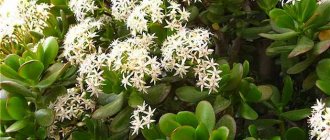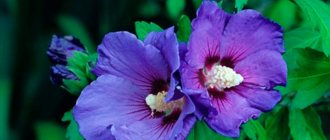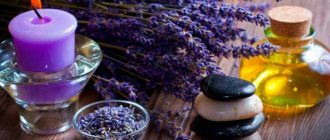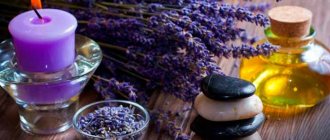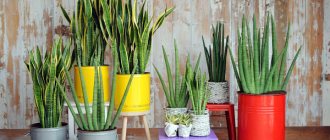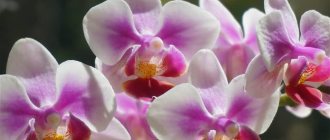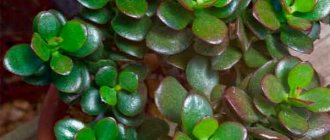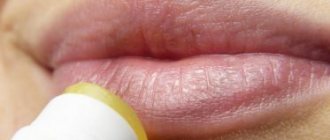Don't think that indoor plants are just pretty. They are able to influence your mood and temperament, as well as “blurt out” the secrets of your character to a stranger.
Indoor plants have a special effect on the energy of the room in which they are located. Feng Shui even gives tips on how to do landscaping to improve the ambiance of your apartment or office. But flowers in pots not only contribute to the establishment of harmony, peace and comfort or, conversely, a restrained work environment. They can influence the mood and character of the inhabitants of the room.
People often choose for themselves those plants that nourish their positive personal qualities or help them fight shortcomings. Here are just a few examples:
- Plants with large leathery leaves relieve too long and tedious speeches, exaggerated doubts, and the obsession with constantly making mountains out of molehills.
- Green pets with fleshy leaves drive away thoughts about money, everyday worries, and dispel mercantile aspirations.
- Plants with small leaves free the mind from pettiness and teach not to worry about trifles.
- Indoor plants with variegated leaves help to see the connection between phenomena and objects.
- Scentless flowers will appeal to fragile and emotionally unstable individuals. On the contrary, a pronounced or even suffocating smell will be appreciated by passionate and even rude natures.
But these are all general principles. What about specific examples? Do you want to know about the influence of flowers on choleric, melancholic, phlegmatic and sanguine people? Which green pets are ideal for people of different temperaments? Then read on.
The impact of indoor flowers on a choleric person
Choleric is the brightest and most unpredictable temperament. Such a person loves to be the center of attention, loves everything new and unusual. At the same time, his tastes are changeable: today he likes one thing, tomorrow – the completely opposite. The craving for everything unusual and non-trivial gives rise to choleric people the desire to have exotic plants - alstroemeria, amaryllis, calla lilies, freesia, eustoma.
People with a choleric temperament are active and efficient. They are ready to spend hours on end replanting, experimenting with soils, cutting branches... But that’s today. And tomorrow they will completely forget about their garden on the windowsill and are unlikely to remember it for a whole month. Therefore, it would be a good idea to choose indoor plants that can grow on their own for a long time without requiring the owner’s attention (for example, cacti, palm trees).
The explosive nature of the choleric person will be balanced by flowers of calm or even cold shades - white, blue, green. But it is better to avoid overly saturated tones, so as not to arouse an already violent temper.
It is advisable for a choleric person to have a tree or a very bushy plant growing at home. On the one hand, it will restrain the owner’s seething energy. On the other hand, you can place a chair under a huge Chinese rose bush or an overgrown ficus tree. This will be the very place where a choleric person can satisfy his need for solitude and temporarily hide from the whole world.
Indoor plants that suit the character of a choleric person
- Agave americana clears space from the energy of quarrels and conflicts. Calms a stormy temper and teaches you to react more calmly to everything that happens.
- Clivia neutralizes the energy of irritation, which is very important for choleric people. After all, even close friends feel like they’re on a volcano with him.
- Maranta is a good solution for landscaping an apartment or office where there are people striving for leadership.
- Capsicum relieves anger and pacifies dissatisfaction with surrounding objects and people.
- Poinsettia (Christmas star) gives the joy of communication and suppresses the desire to compete with others.
- Sansevieria (pike tail) relieves roughness.
What types of house flora are best not to keep at home?
Chinese folk teaching also talks about plants such as “bloodsucking plants,” which include exclusively prickly representatives of the green world. To prevent them from causing harm, they are placed near computers or on the windowsill.
In addition to everything, dried and wilted flowers in the house according to Feng Shui absorb the vital energy of Qi and are spreaders of germs! If you see a wilting flower at home, the shoot should be cut off and all remaining parts thrown away.
In addition, do not bring home flowers that were given to you by people with heavy energy. Since their aura can negatively affect the home atmosphere and the well-being of household members.
These plants should not be kept at home!
Dieffenbachia
This plant is beautiful, with its juice, which, unfortunately, is not beneficial for people, but on the contrary can cause irritation on the skin or burn the retina. It should not be kept indoors, especially for those who have small children. Because if a large amount of juice gets into your mouth, a severe burn may occur.
Oleander
A flowering plant that smells strongly while in bloom may even cause you to faint. Just like Dieffenbachia, its juice can cause blindness due to a mucus burn. Other green friends of the plant have similar effects: Pachypodium, Dipladenia, Periwinkle, Adenium.
Monstera
One of the bright and frightening vampire plants. The monster needs, even needs to evoke fear, horror, and simply attract attention. This plant “feeds” on strong emotions and feelings. The plant is endowed with both disadvantages and advantages: it perfectly cleans the air of dust and carbon dioxide, and releases oxygen. But it also takes energy away from people. Therefore, florists advise storing the plant for those people who are phlegmatic and melancholic. Temperamental choleric people, on the contrary, will have a hard time next to a monstera. After all, they lose their peculiarity by splashing out energy on others. Therefore, it is better for impressionable and often sick people to keep other plants at home.
Fern
Ferns are “guests” from tropical countries. These beautiful green inhabitants are popular in our latitudes. Ferns are one of the strongest energy absorbers. Like Monstera, it absorbs human energy.
Hibiscus
Hibiscus is considered a vampire plant that absorbs energy with lightning speed. This is due to the fact that the plant grows very quickly. And it is also at the moment of flowering that hibiscus consumes maximum energy. But it is worth noting that Hibiscus will certainly attract everyone’s attention with its lush and beautiful flowering.
Thuja
Popular garden flower. In the room, Tuya absorbs all the energy entirely. Lethargy and drowsiness can become your eternal companions. I don't think you would keep such a plant at home.
Shy Mimosa
A strange plant, with a thin stem and small leaves. The leaves of this plant are fragile, and if you touch the leaves with your hand, they supposedly hide and curl into a tube. Fear! With prolonged contact with Mimosa, you can lose your hair.
Ivy evergreen
Poisonous berry plant from the Araliaceae family. Looks like a vine bush. Due to the toxicity of the fruit, it is not recommended to keep this green plant at home.
Adenium
It looks like a beautiful plant. It has thick stems. At the very top of the plant there are thin leaves and pink flowers. Its juice is harmful and toxic, and poisoning of the body can occur.
Croton
From the Euphorbiaceae family. An elongated small tree with spotted leaves. Its petals are invisible, and it blooms extremely rarely. The liquid of this plant provokes the appearance of skin diseases. The poison, once in the blood, can be fatal.
Philodendron
From the Araceae family. Philodendron has lush greenery. Echidous, like Croton. It is advisable not to come into contact with this toxic substance, as it can cause blindness.
Stellera dwarf
A medicinal flower that should be used under the supervision of a specialist. A tall stem, which consists of twenty or thirty dotted spots of white color. Once in the human body, it can deprive the voice.
Nightshade
Flower with bright orange fruit. These fruits are extremely evil and dangerous to humanity. The bright color of the berries attracts the attention of children and pets, which is precisely why you should not keep such a flower at home.
Trichocereus
A relative of the cactus, as it is very similar in appearance to it. External description: long and large needles, blooms with large light flowers, also smells pleasant. Trichocereus contains toxins that can paralyze nerve endings.
Gesner Tulip
A well-flowering plant with a medium-sized stem. There is a small flower in the center. The color can be varied, ranging from light tones to variegated and bright. One of the disadvantages is hair loss and baldness.
Tuberose
A perennial plant whose stem reaches a height of almost 50 cm. It has a strong and sweet smell. Tuberose subdivides microelements that enhance the sense of smell. This power of the plant is also used in medicine. As it turned out, foreign doctors used the flower as a medicine when patients lost their sense of smell due to nerve problems. It is not advisable for anyone with heart problems to have this flower in their home. The aroma of this plant can cause weakness and loss of energy.
Sansevieria
The plant is very interesting in appearance, one might even say strange? Something like the tail of a fish. For this reason, it has a second name, “pike tail”. The green flora blooms and has a delicious aroma. It has a beneficial effect on the clean air of the house, as well as on its aura. However, if you believe ancient and ancient signs, it has a bad effect on personal life, and the owners may remain alone for the rest of their lives.
The impact of indoor flowers on a sanguine person
Sanguine people are very positive people, they are interested in everything, they have a spirit of adventure and adventurism. You can find anything on their windowsills. They easily get excited about the idea of growing an interesting and unusual flower. But they rarely burden themselves with thoughts about whether they can create comfortable conditions for the plant.
The variety of plants in a sanguine person’s apartment can also be explained by the fact that it is important for such people to feel comfortable not only for themselves, but also for those around them. They love to be liked by others. Therefore, they sincerely try to ensure that in their home flower garden there are green exhibits that are pleasing to the eye of every family member.
Plants with bright and colorful inflorescences are suitable for an emotional and energetic sanguine person. This is a holiday person, so boring and dull buds are not for him. But in order to at least slightly contain the fountain of emotions and energy, you should choose flowers in purple, bluish or white tones.
Indoor plants that match the temperament of a sanguine person
- Asparagus has a positive effect on those who often change their minds and do not know how to keep their word. The plant absorbs the fussy energy of those who never sit in one place.
- Dwarf pomegranate will imbue the atmosphere of your home with the energy of joy and comfort. And what could be more pleasant for a sanguine person than the realization that everyone is satisfied and happy! In addition, pomegranate helps to understand desires, which sanguine people always have too many of.
- The Decembrist is useful to those who often subordinate those around them to their interests. But sanguine people really easily make others fall in love with them, therefore, it can be quite difficult to refuse them.
- Dracaena protects against haste and fuss.
- Maranta will organically fit into the space of the house, where bright personalities often gather who seek to demonstrate their talents and abilities.
- Monstera organizes the “mess” in your head and helps you avoid saying too much.
- poinsettia creates an atmosphere of joy and communication, and this is the main condition for a sanguine person to feel in his native element.
- Silver Crassula endows its owner with perseverance and the ability to finish what he starts.
- Chrysanthemum helps to overcome selfishness and learn to hear not only yourself, but also those around you.
- Cyperus (papyrus) will take its rightful place in houses, the residents of which cannot remain silent for a minute. This plant is loved by those who want to “snatch” more information from different areas, but are not ready to delve deeply into any one topic.
Magical properties of indoor plants
Poisonous. However, oleander is a protective plant. Oleander is a heavy plant. Nothing grows next to it. Therefore, it must be placed separately from other plants. Oleander cannot be placed in bedrooms, children's rooms, or recreation areas. This plant looks good in office premises, in the corner of the room, especially in the accounting department, that is, where a lot of small routine work is required. Pandanus
Activates to work. The plant is good to keep in work and play areas, offices, shops, and banks. That is, where the vibrations of this plant will stimulate active activity, composure, vigilance, and attentiveness in a person. Cannot be kept in children's rooms, bedrooms, or recreation areas. Pandanus cannot persuade its owner to have a romantic relationship, but it is able to give her the strength to work, repel negative energies accumulated in the house, and protect her from witchcraft. Later, it will become clear to you why pandanus has such properties when you study its vibrations and find out which planets are in an active state in this plant. It is useful for weak, weak-willed, inert people to grow a pandanus in their apartment, the vibrations of which will awaken a person to action, drive away melancholy and despondency, and give a good mood and optimism. Pedilanthus
If you put a pot of pedilanthus on your desk at work, you have a lot of professional concerns and business activity. Pereskia
Protects against aggression, repels dirty vibrations. This plant is good to keep on your desk; it is indispensable at work. Relieves stress. Can be used in recreation areas where there is an opportunity to actively relax mentally, take a break from your main work, read magazines, newspapers, and solve crossword puzzles. Stimulates mental activity. Ivy
This charming plant can be kept in the bedroom or any recreational area. Relaxes, inclines to a pleasant conversation, charges with optimism, fills the resting body with strength and health. Where ivy grows, you can have a good rest and gain strength. I want to lie on the ivy carpet. Therefore, pots with this plant can be placed in rooms intended for relaxation, in the foyer, in the bedroom and in the nursery. Helps with meditation, it is easier to relax and receive the necessary information. Reo
Guardian and protector. But, in addition, it activates mental activity and business activity. If you are tired or discouraged, place a pot of this plant by the window and you will be in a working mood. It can be placed in the newlyweds' bedroom to encourage them to communicate with each other. Reo is also suitable in playrooms and office spaces. It is not recommended to place it in children's rooms. Roycissus
Does not take root well, but can grow in partial shade. Loves space and curls. The plant is neutral, creates a light, non-disturbing environment, and encourages easy perception of each other. Therefore, roycissus is good for both home and office premises. Rose
This is a social plant. She cannot grow in the country. Rose, like a flirtatious beauty, will wither without fans. She should be where there are a lot of people, she needs love, admiration; in the care and protection of man. And for this, as a sign of gratitude, the rose gives people wonderful flowers. If a rose is unkempt, it may begin to degenerate and run wild. Rosehip branches appear instead of rose shoots. Ruellia is beautiful
Good in relaxation areas, in the bedroom, in the children's room. The person next to her feels comfortable and at ease. Ruellia can be considered a weakly magical plant. Wherever ruellia is located, it softens the situation, but does not dissipate or soften. A friendly plant, cozy and comfortable. The velvety leaves feel like the softness of a sofa cushion. Sansevieria
It holds back emotions, does not allow them to be splashed out, gives hidden sympathy, so it is quite difficult to express your love. Only when feelings have already been identified does this combination strengthen love and sympathy. A versatile plant. Can be kept anywhere. Well - at work, if there are secret feelings, then they will be kept secret from everyone and not outwardly manifested. Saintpaulia (Uzumbara violet)
A kind, sweet plant that everyone loves. Therefore, you can place it absolutely everywhere: in bedrooms, children’s rooms, kitchens, offices. Setcreasia purpurea
This plant can be grown in work areas and offices where frequent scandals occur. Syngonium
Good to place in bedrooms and relaxation areas. A resting plant, it relaxes, takes you away from heavy thoughts, creates peace in the soul, goodwill, and is conducive to daydreaming and romanticism. Scindapsus
Indicator plant. This amazing and dangerous vine is capable of accumulating both negative and positive energy and living with it for a long time. At a certain moment, this energy is released into space, and several times stronger. If there was a quarrel in the family and the vine absorbed its negative energy, then it will throw out 20 times more negativity than it took in. If there is a hot-tempered husband in the family, these vibrations will linger in the house for a long time, which does not bring anything good. If there is peace and prosperity in the family, the vine activates good energies and promotes further prosperity. Therefore, the vine can be grown either in a prosperous family, or in institutions, away from workplaces: in the foyer, in the hall, where they do not linger for a long time. At home, it is better to keep it in the kitchen and away from the bedroom, nursery and rest areas. You can do it in the living room, but not near the sofa or armchairs. An exception may be the premises of a church, places near icons where a person prays, as well as an apartment where a spiritually aspiring person lives. But don’t overestimate yourself: it’s not only envy and anger that causes negative energies. Dejection, a feeling of loneliness, melancholy, grief, resentment, laziness also carry negative energies. If a person is lazy, let him not increase his laziness through this plant. And so on. Crassula (money tree)
Crassula Crassula, which is popularly called both the “money tree” and the “tree of happiness,” has protective powers. Can be used for medical purposes for external use. Crassula juice is good for rubbing on tired feet, cracked, sore soles. Good to keep in an apartment on the window. This will be a protector tree for the house. Softens the atmosphere in the family, stabilizes emotions, relieves aggression, tension, normalizes family relationships, calms nerves, activates mental activity, and encourages friendly business contacts. A pot of Crassula can be successfully placed in the office near the desk. A fat one in the bedroom will not hurt, it will calm the nervous system, bring emotions back to normal, and induce a restful sleep. The fat woman is not only a good protector of the home, not only knows how to relieve the fatigue of the past day, but also will place all family members in a friendly manner. Ficus
I usually like ficus, it makes me want to have this plant. The plant is not aggressive, has a beautiful shape that attracts people. Ficus cannot be placed in the bedroom, as it causes heavy sleep, headaches, and fatigue. The vibrations oppress him and do not allow him to relax. Ficus should not be placed near the coffee table, near the bed, or in any place intended for relaxation. The plant should not be placed near the desktop. The plant causes outbursts of emotions, aggression, although it extinguishes these outbursts, and the person keeps the unexpressed aggression within himself. It is best to keep the ficus in the foyer, where you look at the plant and pass by. Either in a room, or in a workroom in a corner where no one is. Fuchsia
The plant is not magical, but no less useful for that. A good flower, kind in character and attractive in appearance. Admiring the charming blooming fuchsia, you are involuntarily charged with a feeling of joy. It charges a person with optimism, gives a lift in good mood, vitality and a feeling of joy. Joy, in turn, gives rise to sublime feelings that manifest themselves in combination. It may cause a person to be somewhat pompous in his explanations, but this is very good when a person writes poetry or reads it in front of an audience. This combination is especially useful for actors, politicians, lawyers, when you need to make a brilliant speech in public and make a favorable impression on it. Fuchsia is not used for medicinal purposes as a medicinal plant, except for the healing power of its vibrations for the emotional state of a person. The bright, cheerful radiation of the flower will help a person overcome fatigue more easily, quickly get out of a sluggish state, and be charged with joyful strength and the desire to live and create. This plant can be kept anywhere; it is equally useful both on the desktop and in the children's room. It will bring satisfaction from their activities to everyone: both a serious scientist engaged in important research problems and a small child engaged in equally important matters in understanding the world. Haworthia
Protective plant. Energy plant. Gives its positive energy to the environment. Haworthia not only protects and protects good vibrations in the house, but also strengthens them and prevents energy from being scattered. If such a plant grows poorly, it means it gives up a large flow of energy to combat negative influences. These bad energies can be emitted by the person himself, his silent envy, fear, ill will, and also accumulate in the process of open struggle, conflicts, quarrels that can occur in the family or in the work team. The plant does not have enough strength to grow on its own. This amazing plant shows a vivid example of selfless self-sacrifice for the sake of one's neighbor. Haworthia is good to place on the desktop or in the kitchen. It gives strength and energy, work and mental activity. A person can work easily and productively both at his desk and in the kitchen. Haworthia should not be placed in the bedroom or children's room. Cyperus
The plant is not magical, but it is a strong energy drink. Next to him you are saturated with energy, you feel more confident and stronger, you receive a charge of vivacity and optimism. Therefore, you can keep it wherever energy is required: in any workplace, in offices, in the kitchen. In bedrooms - not recommended. Episcia
The plant is not magical and, one might say, not medicinal. Although one can argue about this, since its strong radiations can successfully raise a person’s vitality, endow him with favorable energy, and make communication between family members pleasant. But it does not activate a person’s mental activity, although it can give him the joy of creative work, good potential for a healthy mood, and work will undoubtedly give a person great pleasure. Spreading vitality around itself, this small plant brings a person the joy of being. It is joy that is the healing power of this plant. Therefore, the main purpose of this beautiful flower is to bring JOY to a person. Therefore, it is very useful to keep the essay in your office and on any desktop. It is perfect for our cramped kitchen spaces, where the housewife will happily bake pies and prepare delicious dinners to the general pleasure of her family. A good episode for a hall where family members and their guests will find communication with each other pleasant. You can place this plant in the bedroom, where the relationship between the spouses will become mutually attractive. This flower is useful in a children's room. The baby, perceiving its good vibrations, will undoubtedly become more cheerful and cheerful. Although during sleep, the epitome can be removed from the nursery. Epiphyllum
Magical plant. Energy plant and protector. Strengthens vigorous activity. Keep in work areas. Not allowed - in recreation areas, in bedrooms. Eucharis
The slogan of this plant, wherever it grows, is comfort and coziness. Attracts attention, creates a cozy, friendly atmosphere at home and at work, softens and relieves tense situations in the team and family, provides an opportunity to relax, maintains this comfortable state and does not allow one to completely relax, and encourages hard work. Develops intuitive perception in a person. Therefore, eucharis is indispensable both at home and at work. You can keep it anywhere: in the bedroom, in the office, etc.
The impact of indoor flowers on a phlegmatic person
An unemotional and uncommunicative phlegmatic person always sees things through to the end. He never rushes and is very patient. He is ready for routine work and performs it extremely meticulously. That's why even the most capricious plants feel great in his house. After all, a phlegmatic person is ready to tinker with each potted flower for a long time in order to create ideal conditions for it. Despite this, the phlegmatic person prefers not capricious exotics, but simple “grandmother’s” plants - aloe, crassula, violets. Things familiar from childhood give these people self-confidence.
Phlegmatic people love “cozy” flowers with muted colors. It is important for them that nothing irritates them or throws them off balance. Plants of deep pink, yellow or orange color can stir up and invigorate such a person a little.
Indoor plants that will appeal to phlegmatic people
- Azalea maintains good spirits and prevents you from walking around all day like a sleepy fly.
- Calla fills you with the desire to create, despite the misunderstanding of others.
- Monstera helps a conservative phlegmatic person find new food for thought and look at the most radical innovations without negativity.
- Scindapsus aureus transforms passivity and laziness and imparts organizational abilities.
- Hybrid fuchsia is a fighter against conservatism. The plant helps you concentrate on business and inspires good spirits. Provides moral support to those who often step on the same rake.
- Lemon increases activity and independence.
- Yucca helps to gather strength in difficult times and gives self-confidence.
Images with flowers in the teachings of Feng Shui
The science of Feng Shui interprets drawings with flowers and paintings as unique portals that can endow the room in which they are located with powerful energy. Indoor, forest, and mountain plants are great for images placed in living rooms, guaranteeing a flow of happiness and good luck. Each flower is endowed with a hidden meaning:
- peonies and poppies will give an important meeting, and provide understanding and harmony to the married couple;
- lotus guarantees authority, respect and well-being;
- white lily and lily of the valley symbolize purity and balance in the home;
- an orchid guarantees mutual understanding and many children;
- chrysanthemum balances the heart and mind;
- Roses give life to positive energy and give prosperity in love.
For paintings depicting flowers, the southwestern sector of the room is best suited. If you need to restore mutual understanding in a married couple, it is better to hang a picture in the bedroom. When you need to improve relationships between family members, it is worth placing the picture in the living room, between employees in a team - in the office. It is rational to place an image with a plant favorable in Feng Shui exactly where it is necessary to restore harmony and agreement.
The effect of indoor flowers on a melancholic person
Melancholic people are distrustful, prone to doubt, and suffer from low self-esteem. Changes in life for them from relatives are a disaster. They are shy and unsociable, and can become depressed over little things. But their isolation and focus on themselves also has advantages: such people almost always have a rich imagination.
The favorite color of melancholic people is yellow. Sunny flowers compensate for the sad mood of their owners. However, other bright flowers are unlikely to suit the taste of a whiny person. They will irritate the owner’s already unstable psyche.
Melancholic people often use climbing plants for landscaping at home, which seem to create a living barrier, protecting them from the whole world.
Houseplants that are close in mood and spirit to melancholic people
- Abutilone striped (indoor maple) inspires a cheerful mood and gives a feeling of elation.
- Large-tufted pineapple clears the atmosphere of tediousness and fills the space with the spirit of novelty. Helps to get out of the vicious circle of worries. Gives impetus to spiritual awakening.
- Mason's begonia is support for people who are ready to cry over any trifle. Makes the atmosphere more balanced.
- Dracaena does not allow you to get bogged down in pessimism and self-criticism.
- Calla serves as a happy amulet for household members. Its leaves are filled with heartfelt warmth. The plant will be useful for melancholic people who react painfully to the misunderstanding of others.
- Croton gives confidence and prevents you from falling under bad influence.
- Palm trees act as a kind of home psychotherapist for a melancholic person, absorb negativity and charge with energy.
- Ferns absorb negative emotions.
- Brownish siderasis helps you get started and not give up at the first difficulties.
- Fatsia japonica improves mood, relieves depression and an overly gloomy perception of life.
- Ficus rubber must definitely be where whiny people live, ready to revel in their grief and tell everyone about their troubles, expecting sympathy.
- Chrysanthemum instills unshakable self-confidence.
- Persian cyclamen is the little sun of the house. The plant creates a relaxed atmosphere at home and helps get rid of whims.
- Aechmea sparkling helps to make decisions, fights absent-mindedness, and gives energy to act.
Artificial flowers at home
According to Feng Shui, absolutely all flowers and house plants are a positive symbol. If we talk about artificial flowers, they also have their advantages, which, for example, do not have in potted households. After all, they can be placed where breathing plants cannot survive. For example, near the fireplace, in places with high humidity, in rooms where there is no sunlight, and also in a cozy bedroom.
When buying flowers, you need to refer to the same rules as when choosing flora for your home! Elongated artificial plants will only bring profit in all areas of life, and short ones will bring peace of mind. Sharp ones are a symbol of a male undertaking, round ones are a symbol of a female one.
Plants that will reveal all the secrets of your character
Even scientists recognize the influence of colors on a person’s mood. But let’s not pretend: few people study specialized literature in order to choose which flower to grow on the windowsill in order to strengthen personal qualities or level out negative traits of temperament. Most of us choose indoor plants intuitively, according to the “like it or not like it” principle. And we absolutely do not think that sympathy for certain potted flowers is based on the connection between the energy of the plant and our inner worldview.
So, what secrets do plants reveal about the character of their owners?
- aloe on the windowsill of a person who adheres to traditions in everything. The owner of this useful plant is usually modest, quiet and well-mannered.
- Geranium is a favorite of non-conflict natures with a good sense of humor and a positive outlook on life.
- Cacti live in apartments of prickly natures. Collectors and simply lovers of these plants are distinguished by their warlike character, often being hot-tempered and aggressive, but at the same time they highly value wisdom and a flexible mind. Such people can be tough, but usually fair.
- A camellia on the windowsill will tell you that its owner cannot stand chaos and fuss, striving for a calm and measured life.
- Lemon will appeal to independent and self-sufficient individuals with an active lifestyle. These people have a lot of self-confidence, they are incredibly diligent and always achieve what they want.
- The orchid belongs to women who can easily fall in love at first sight. Moreover, they are liked not only for their beauty, but also for their prudence.
- rose takes pride of place in the apartments of creative people with a subtle and sensitive soul. Such people try their best to avoid conflict situations and strive to solve problems in advance.
- Tradescantia can be found in the homes of many sociable people, about whom they say “soul.” But it’s as if it was written about me! That’s exactly how it is!” Have you found any connections between your favorite indoor plants and your own character?
Favorable plants for the home according to Feng Shui
In order for the plant to act as efficiently as possible, it is necessary to choose it rationally in accordance with individual needs and the location where you plan to place the flower.
Azalea
This plant can be an excellent donor of creative energy. If you constantly feel tired and exhausted, it is worth understanding which plants will restore vigor and vitality. Azalea will give a “second wind” and inspiration to those people who are tired just after waking up. Azalea revives its owner and develops empathy. The subtle aroma of the flower provides concentration, the ability to focus on what is important and ignore the less significant. Physically, it helps improve the condition of the cardiovascular system and improves blood circulation. You should be very careful and caring with azalea.
Guzmania
This green plant has long, thin leaves. Guzmania provides a good mood and prevents depression. It is recommended to place the flower in the eastern or southwestern parts of the house. Guzmania gives peace, tranquility, harmony in relationships, the red color helps to retain love feelings. A yellow flower will provide financial enrichment and good luck. By placing a diploma next to Guzmania, you can become more successful in the professional field.
Calla lilies
According to Feng Shui, different plants perform different functions. Callas protect the house in which they are located. They help preserve love in marriage, give youth and external attractiveness. This plant will help get rid of stress and encourage you to take important actions. Not only the flower itself, but the image with it, is endowed with powerful power.
Crassula
This plant is called the money tree, which has power. Crassula can influence financial well-being, giving success in all areas. It is recommended to place these flowers in the south-eastern part of the house. It is best to grow a tree yourself so that it feels the love of the owner and recognizes the atmosphere of the room. You can place coins or ribbons on it, placing it on a red or purple napkin with hieroglyphs denoting financial well-being.
Plumeria
A tree of incredible beauty, with a subtle heavenly scent with white-yellow and crimson petals. The plant symbolizes eternal life and victory over death. In Thailand, it is customary to place the plant near holy places and churches. The tree has gained great popularity in Hawaii and is endowed with a sacred meaning. It is recommended to place plumeria on the south side of the room; the tree is perfect for the bedroom. In addition to its aesthetic characteristics, the plant has the ability to give home owners health and prosperity.
Nematanthus
The Brazilian shrub produces beautiful orange flowers. Placed in an apartment, Nematanthus plants will ensure the health of other green friends indoors. Planted near nematanthus, even seriously ill plants get a chance to recover. A friend from Brazil will give a person health and mental balance, as well as financial prosperity. The most important thing is to provide the plant with care so that it remains in good condition.
Violet
Violet is associated with Yin energy. The flower attracts financial well-being and physical health. Red pink flowers give vitality, and white flowers give peace and confidence in the future. Blue flowers provide motivation and inspiration.
Geranium
The aroma of the plant provides a calming effect, relieves stress, gives success in endeavors, good luck in all areas of activity. The flower is related to Yin energy. The smell of geranium repels insects. It is not recommended to place geraniums where the owners are most often.
Begonia
If you often have guests, begonia will prevent negative energy flows from entering the house. The room will be filled with beneficial energy.
Ficus
The tree will relieve negative emotions and aggressive manifestations and give peace. Capable of imparting energy, concentration, and enthusiasm. Drives away depression. It is important to know that it is not recommended to place a ficus in the marriage zone: located in this sector, it can spoil interpersonal relationships.
Date palm
Often grown from seed. This plant has positive energy and brings happiness to the room and family members. Helps you focus on what is most important, relieves you of sadness and negative emotions, and gives you hope for the best.
Ferns
Perfect for rooms with negative energy, as they feed on negative currents. It is not recommended to be placed in a room with a sick person.
Chrysanthemums
They promote advancement at work, in particular, improve relationships between partners. Great for offices and work areas.
cacti
Many people believe that cacti carry negative energy, but with a rational approach they can rid the room of electromagnetic waves. They are beneficial when placed next to technical devices. If you plant a cactus on the windowsill, it will prevent theft in the house.
dollar tree
Gives financial well-being. Feng Shui experts advise planting a tree yourself by placing coins at the bottom of the pot. When the tree grows, you need to wrap the branches with ribbons and coins and place the pot in the southeast zone.
Citrus
They have a good influence on children: they help with their studies and promote the development of mental abilities. Perfect for a children's room.
Is it possible to place fresh cut flowers at home?
Bouquets of cut flowers also bring positive energy into the house. In particular, roses, peonies, poppies, lilacs, and orchids are good at this. You should pay attention to the colors of plants and their location. This beauty can be placed in the bedroom. Because, unlike flowers in pots, they do not rot. However, cut flowers are not durable, and this is their big disadvantage.
“If you notice how the flowers begin to fade, then immediately replace them with new ones. It’s advisable, it’s better not to delay with this!”
Male and female flowers (plants)
It is worth noting that there are plants with male and female vitality. Yang is the energy of the stronger sex. Such plants include: citrus trees, dracaena, chlorophytum, etc. Yin is the weaker sex. It is not difficult to distinguish them: Yin plants spread along the ground, their leaves are mostly round and oval. Yang - plants look and grow upward.
Plants representative of Yang:
Aloe
Aloe is one of the most common representatives of plants that carry Yang energy. It's no secret that Aloe is very useful. It is also necessary for those families whose relatives are susceptible to frequent illnesses. In addition, this plant has been used since ancient times in mystical rituals to attract love and get rid of loneliness.
Anthurium
This plant also has the energetic power of masculinity. It personifies courage and passion and gives self-confidence. In some South American countries, anthurium is believed to bring happiness and prosperity to the home.
Chrysanthemum
This flower removes misfortune and misfortune from the home. Also, the petals of the plant protect the owners who are going on a long journey or long journey. It helps maintain balance between emotions and mind.
Plants that are representatives of Yin:
Tradescantia
It will perfectly protect you from the evil eye and dark forces. This plant blocks electromagnetic radiation, purifies and humidifies the air. Florists advise keeping Tradescantia for those people who suffer from diseases of the respiratory system.
Cyclamen
Cyclamen is also called Alpine violet. It has been popular since Ancient Greece. This plant has a beneficial effect on the atmosphere in the house: it improves spiritual as well as physical health, also serves as a talisman against the eyes, and improves physical and mental performance.
Fuchsia
This plant is often called the flower of dancing elves. In itself it is very delicate, radiates softness and grace. This flower helps strengthen the spirit and attracts positive emotions like a magnet.
Primrose
Primrose was popular in Ancient Greece. In Greece it was called the flower of the twelve gods. Some people believed that it was a medicinal plant of Olympus. Primrose is immune to evil eye damage. He will definitely protect you from all evil forces. In ancient times, it was used in supernatural rites in order to remain young forever.
Adviсe!
- Every cozy home needs houseplants. Whether they are independent is female or male. This way life balance will be maintained.
- It is prohibited to store herbariums, ikebanas and any dead plants at home. They take all the good energy and take away the strength from the household.
- Place male flowers in the hall, living room hall. Place women's ones in a room with calm energy. This could be a bedroom, a nursery, or a hallway, but there should be no plants in the kitchen.
